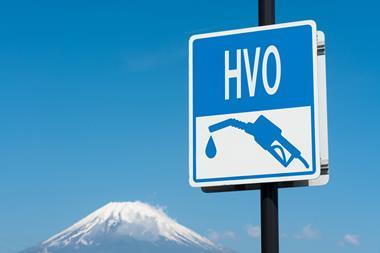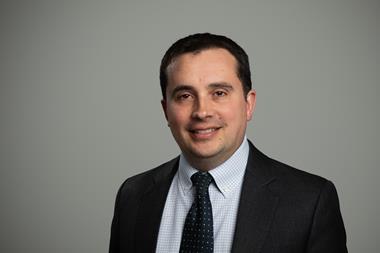Retailers have until October 18 to respond to an Office of Fair Trading (OFT) questionnaire as part of its assessment of the UK petrol and diesel fuel sector to identify whether or not there are competition problems it can tackle.
The Petrol Retailers’ Association (PRA) has been chasing for a full inquiry into the fuel retailing sector since January. This formal call for evidence follows the OFT’s response in June that its provisional position was not to launch a full investigation, but instead requested further evidence from the PRA.
The OFT has now said that it wants to explore whether reductions in the price of crude oil are being reflected in falling pump prices, and if practices adopted by supermarkets and major oil companies may be making it more difficult for independent retailers to compete with them.
In addition, it will look into whether there is a lack of competition between fuel retailers in some remote communities in the UK, and if concerns about price co-ordination and the structure of road fuels markets identified by other national competition authorities are relevant in the UK.
Brian Madderson, chairman of the PRA, said: "This is fantastic news for retailers and members. PRA has continued to have a dialogue with the OFT and supply evidence but this is a significant step forward on the path to a full market study. The OFT has now acknowledged that it’s been 14 years since the last study into the retail fuels market and, given new claims about unfair practices and pricing as well as fuel prices continuing to rise, it has felt that on reflection, now is the time to take a proactive stance."
The questionnaire is thorough and comprehensive, targeting all sectors of the fuel retailing industry including all types of retailers, oil companies and wholesalers, but one of the objectives of a PRA committee meeting with the OFT on October 2 is to find out which questions are the vital ones for retailers to complete.
"One of my worries is that, as in 1998, the now even more hard-pressed dealers will fail to use the opportunity to lodge their complaints. We don’t have long to whip up some enthusiasm from dealers to respond to the questionnaire," said Madderson.
Should the information received by the OFT point towards competition problems, the options open to it could include undertaking further work to consider referring the market to the Competition Commission for in-depth analysis; launching a market study into a specific aspect or aspects of the market; seeking voluntary action from the industry; or undertaking consumer or competition enforcement.
Retailers are being asked to explain how competition works at the retail level of the supply chain, and provide information on how they set retail prices. The OFT also wants retailers to explain the main components and drivers of costs at a retail level, and describe their relationship with their supplier. It is also interested in whether increases in the price of crude oil are reflected in the pump price quicker than reductions are.
This issue of speed in pump price changes as the price of crude oil goes up and down was also the target of a Watchdog programme on BBC1 last month, sparking dismay from the PRA. Madderson described the show, which featured AA president Edmund King, as a "misleading portrayal of independent forecourt retailers". The programme suggested that retailers were profiteering when oil prices fell by not reducing their pump prices at the same rate.
In a letter to Watchdog, Madderson stressed that the independent sector accounts for 60% of total site numbers, with four hypermarkets accounting for 15% and the balance of 35% being major oil company-owned and operated sites. "These sectors have quite different product costs and therefore pricing policies," said Madderson. "It is inaccurate and misleading to make generalised statements about ’retailers’ when each sector is so differentiated. Our criticism applies not only to the programme editor and producer but also to the guest from the AA.
"To our knowledge, the AA has never owned and/or operated a filling station and is unlikely to have in-depth knowledge of the industry as was patently obvious during the interview. If independent retailers were truly profiteering then surely the sector would be booming rather than declining. Comments made by the AA’s Edmond King on Watchdog will add further pain to this already struggling sector and heighten the tension between our cashiers and their customers."
The OFT plans to publish its findings in January 2013. Meanwhile the questionnaire can be downloaded from the OFT website: http://www.oft.gov.uk/OFTwork/markets-work/othermarketswork/road-fuel-CFI/.
oil price rigging probe
Energy minister John Hayes is to write to the Financial Services Authority about the many concerns including evidence of the rigging of international oil prices raised in a House of Commons debate on fuel prices last month.
The debate concluded that the OFT and Financial Services Authority should launch a full investigation into oil firms active in the UK and called on the government to consider the emergency steps being taken in other G20 countries to reduce fuel prices.
Hayes said: "I will write to the Financial Services Authority about the concerns raised here today. There is no point in our having these sorts of debates if they do not inform and inspire government policy.
He said it was absolutely right to enhance transparency in the oil and commodity markets: "The government continues to work to improve the functioning of the global market and to reduce price volatility through engaging with key oil-producing countries to promote investment in oil production and responsible behaviour in the market.
"To that end, we have also championed a new charter for the International Energy Forum, and we will continue to monitor closely the impact of initiatives being taken in several other G20 countries, including Germany and Austria, to improve fuel price transparency.
During the debate Hayes said fuel was of fundamental significance to consumers: "It is in our mutual interest to ensure that motorists and businesses are confident that they are being treated fairly, and that when the cost of crude oil comes down, reductions are passed on transparently and without unnecessary delay."
The House of Commons debate on fuel prices was introduced by Robert Halfon MP, and follows campaigns by the PRA and FairFuel UK.

































No comments yet